Stanford University’s Amazing Pandemic Policy Conference
October 9, 2024 Margaret Song, MD, MPH
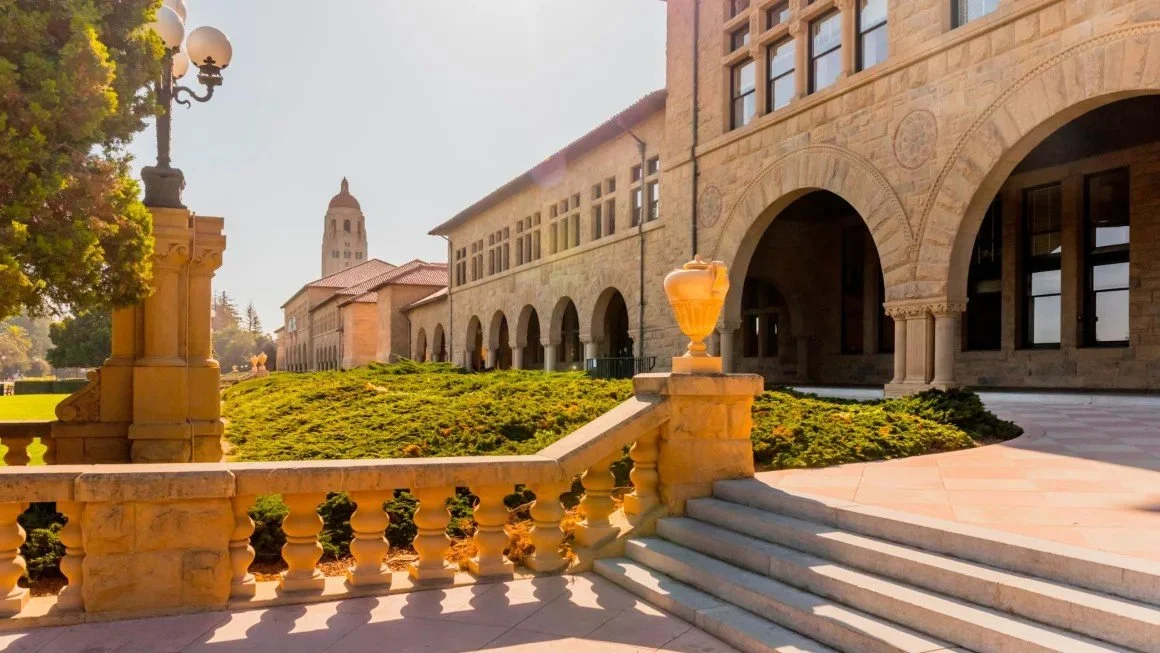
On October 4, 2024, I had the privilege of attending a conference at Stanford University titled “Pandemic Policy: Planning the Future, Assessing the Past.”
It was notable in that it was the first academic conference held at a major university that attempted to give an honest critique of the United States’ public health agencies’ response to the Covid-19 pandemic.
Organized by Dr. Jay Bhattacharya, Professor of Health Policy at Stanford University, the panels featured an impressive assembly of notable epidemiologists, health policy experts, public health officers, attorneys, and journalists. The topics covered by the panels included evidence-based decision-making, censorship and academic freedom, and informing future pandemic policy.
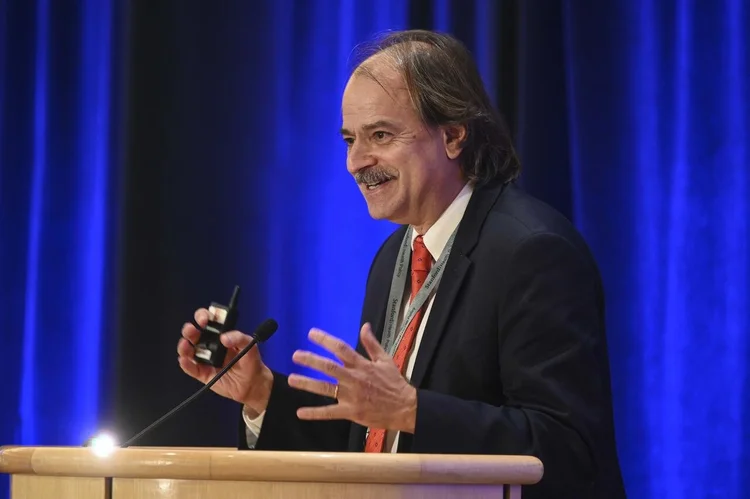

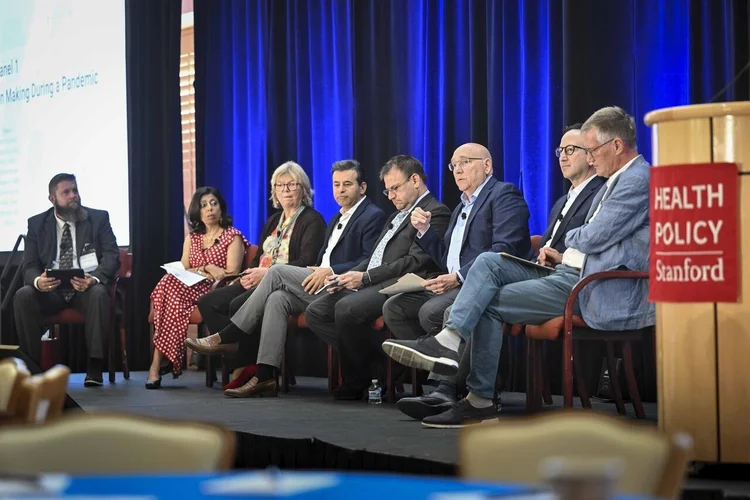
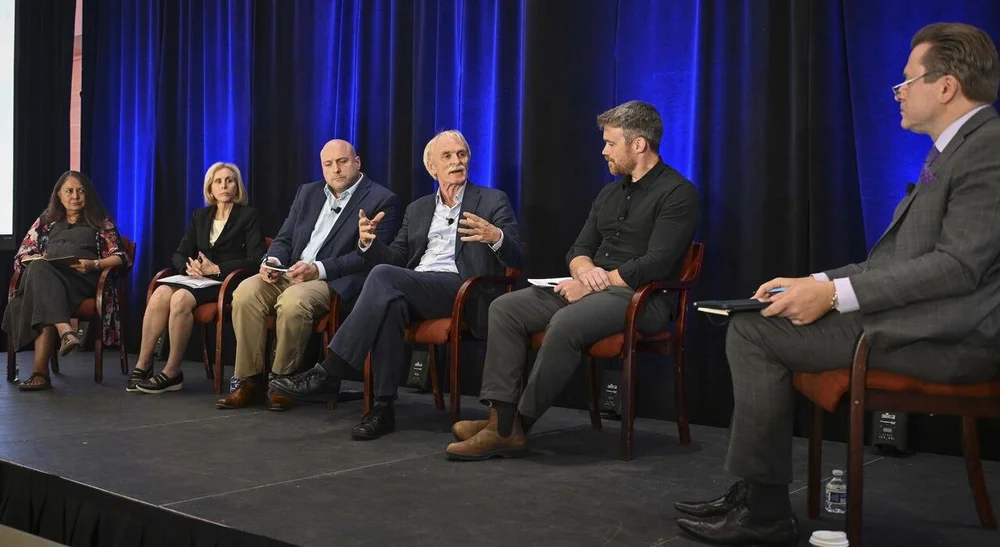
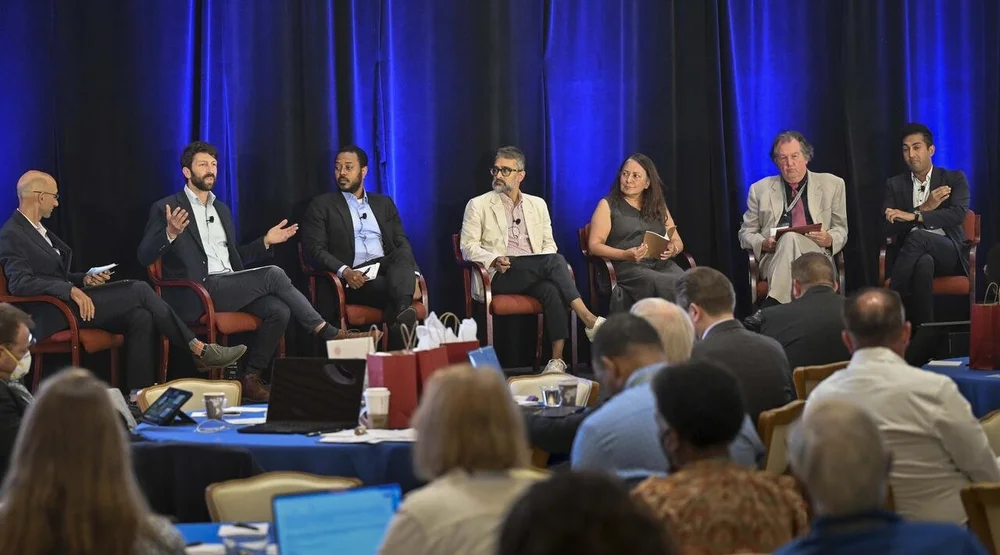
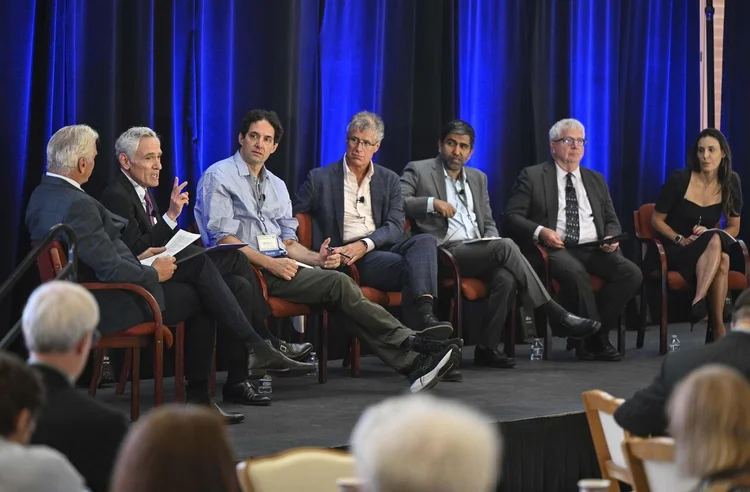
While there was diversity of opinions about the justifications for the interventions that were done during the pandemic, the general tone of the panels was decidedly critical of the actions of the United States government and its agencies. It was the first time that academic experts were able to discuss censorship and other vital matters on a university campus, thanks to Stanford’s new president, Jonathan Levin, who allowed the conference to take place against enormous pressure to close it down.
Higlights
Dr. Marty Makary of Johns Hopkins University noted that dissenting opinions were crushed.
“There is no interest in evaluating the largest public health intervention in modern history.”
Monumental decisions were made by the votes of a few of Anthony Fauci’s friends. Civil discourse was shut down, the top 2 vaccine experts at the FDA were fired in order to ram through vaccine boosters, and the voices of objecting doctors were silenced. There was almost a 10,000-fold difference in the risk of death from Covid between an older adult and a young healthy child.
“The untold story of the pandemic is the toll it took on children who were shut out of school for almost 2 years.”
On noting that only 30% of Americans now trust public health agencies compared with 70% prior to the pandemic, Dr. Makary opined that this staggering decline in trust is not due to Americans hearing somewhere that microchips are being injected through the vaccines, but stated that “public health trust is down because people realize we were lied to for 3 years.”
Dr. Anders Tegnell, former state epidemiologist for Sweden:
“It is easier to start an intervention than to stop it.”
Dr. Scott Atlas, health policy expert at the Hoover Institution, Stanford University, former Chief of Neuroradiology, Stanford University Medical Center, former Advisor to the White House Coronavirus Task Force under President Donald Trump:
“They want to blame the failure of what was done on those that disagreed with what was done.” It is antithetical for a democracy to take down information at all. The solution for misinformation is more information.”
Michael McConnell, Director, Constitutional Law Center, Stanford Law School, member of Meta (Facebook’s parent company) Oversight Board: Clarified that the Supreme Court’s ruling on Murthy vs. Missouri was merely that the plaintiffs did not have standing, not that what the government did was fine. The Meta Oversight Board is now recommending that social media companies inform the public when the government asks them to take down content. There were 80 claims regarding Covid that Facebook regarded as misinformation. The Oversight Board now realizes that they arose during a time that they knew little of what was going on. They propose that the claims be reviewed periodically, and the public be notified and allowed to have input.
Jenin Younes, attorney representing the plaintiffs in Murthy vs. Missouri: The Constitution protects “misinformation.” Social media censorship turned to government censorship. One of the reasons was because the Biden administration wanted everyone to get vaccinated. There are at least 100 government actors that were involved.
Gardiner Harris, public health reporter for the New York Times: Described how years ago, he could walk into the CDC in Atlanta, wander around, and talk to anybody. Since the pandemic, the CDC and NIH do not allow anyone to talk to the press other than designated mouthpieces. During the pandemic, at the CDC, the press could only speak with Rochelle Walensky. There were many people at these organizations who disagreed with what was going on who were not allowed to speak to the press. Mr. Harris also described how then FDA Commissioner Scott Gottlieb and Pfizer “jawboned” Twitter to ban journalist Alex Berenson.
Alex Berenson, best-selling author and New York Times reporter:
“The federal government has no business targeting individuals. If [I] broke the law, get a warrant for my arrest. . . They have no business deleting someone’s social media history.”
Vinay Prasad, Professor of Biostatistics and Epidemiology, University of California San Francisco: Noted that we knew by as early as 2020 that school closure did not slow the spread of disease. The most catastrophic long-term global impact of pandemic policies has been on the young. He decried the practice of making “causal claims” based on “marginal effect sizes” in studies. He described how during “peak pandemic” he could not publish anything. He found himself trying to minimize his risk of getting fired.
Those difficulties are not over, as other researchers I met at the conference described ongoing roadblocks to conducting studies on the health effects of the vaccines, for instance.
I enjoyed meeting epidemiologists I have long admired, including Dr. Tracy Hoeg (MIT and UCSF) one of the few bright lights on the epidemiology landscape during the pandemic, and the revered Dr. John Ioannidis (Stanford). I was pleased to meet Dr. Azadeh Khatibi, a brave ophthalmologist in Southern California, who along with Dr. Hoeg and others, were the plaintiffs in Hoeg vs. Newsom, challenging the infamous “doctor-muzzling bill” AB 2098 which was signed into law and later repealed.
The conference was a start toward more honest dialog within academia and a recognition that universities are an important space in which those dialogues must happen.
Conclusion
I share this report with the church to underscore something important: “Science” is a fluid, often mercurial process which is sensitive to politics and money. It is not a monolith and certainly not written by the finger of God on tables of stone.
Therefore the church should get out of the business of recommending any contemporary iteration of “science,” forcing employees to choose between their livelihoods and getting a pharmaceutical agent, or supporting government mandates under the assumption that they are effective in protecting communities (see footnote).
“Put not your trust in princes, nor in the son of man, in whom there is no help. . . Happy is he that hath the God of Jacob for his help, whose hope is in the Lord his God” (Psalm 146:3-5).
****
Footnote:
“Claims of religious liberty are not used appropriately in objecting to government mandates or employer programs designed to protect the health and safety of their communities” (Reaffirming the Seventh-day Adventist Church’s Response to COVID-19. Silver Spring, Maryland, United States | General Conference Administration, Biblical Research Institute, General Conference Health Ministries, Public Affairs and Religious Liberty Department, General Conference Office of General Counsel, and Loma Linda University Health. October 25, 2021).
No comments:
Post a Comment